Your yes makes me believe I could belong here too
A story of a faith community who offered a generation-shifting yes
Note: When I refer to church, I’m referring to the mostly progressive Christian spaces I grew up in. They’ve got plenty of their own issues to reckon with, but I want to be abundantly clear that I’m not referring to communities that have nose-dived straight into Christian nationalism.
Let’s be honest. Most churches are notorious for moving slow. I’ve spent my life in these systems and had a front row seat to the complexity involved in making decisions together. The trepidation they navigate at making changes to something that’s meant a lot to them is real. Earlier on, I learned to temper my young energy and curiosity so as to not offend my elders. I carved out space to show up more fully wherever I could, all while sensing the generational tension in the air.
Then I got to the community I’m serving now. Built in the 1960s, you can see pictures here of the outside and the inside of the sanctuary.
My first reaction upon entering the space was, “Wow, there’s a lot of wood in here. It feels pretty dark.” I quickly learned that some people loved it this way, but most people nodded their heads and muttered their agreement. “We’ve tried a few times to remove the pews but didn’t quite get there.”
Jenny makes a big mental note.
We continued on for the next year and a half together. Getting to know each other, building trust, listening for resonance as we made decisions together.
Then last August, we explored some new ways to be a church together. What if, using universal design, we created a faith community centered around the needs of kids, youth & young adults in our community? With universal design principles, when one centers those who’ve been marginalized, the outcomes work for everyone. (Think automatic sliding doors for parents pushing a stroller or someone in a wheelchair or an accessible playground).
We reimagined our leadership teams through the eyes of a child.
We wondered what our weekly gatherings might look like if a neurodivergent teen was held at the center of our design.
It was a delightful thought exercise. But the number one thing I noticed is how much energy it unleashed in the community.
So many people said they were ready to remove the pews. Over and over and over. I was shocked. My younger years of working with my seasoned elders led me to think the opposite. But no. They were ready for more flexible space to connect with their neighborhood during the week. They were ready to experience creative ways to gather on Sundays. They were ready to make room for their queer and neurodivergent friends who were steadily walking through our doors. “We want to see each other’s faces, not the backs of our heads!”
So they did it
After a lot of conversation and listening to each other this fall, they decided to remove the pews! They found the resources, lined up contractors, prepared for asbestos removal, and picked chairs. They even picked out new carpet without fighting over it for months! ;) They made plans to gather in another space in the building for the 5-6 weeks of construction.
And then the day finally arrived this past Sunday. The last Sunday with the pews in place.
It was holy ground.
We gathered with a variety of emotions. We made space to name the grief that hung in the air. For many, they’d sat in their pew with a beloved spouse or child who may have since passed. They weren’t just pieces of wood. They held powerful memories. We wrote the names of our loved ones who sat in those spaces with us.
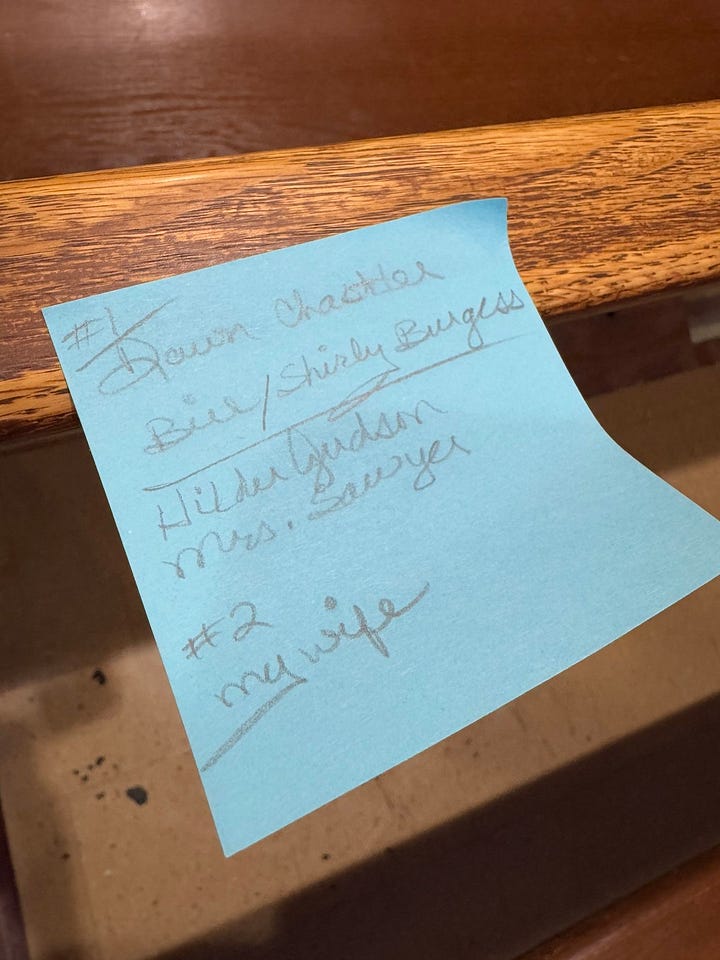
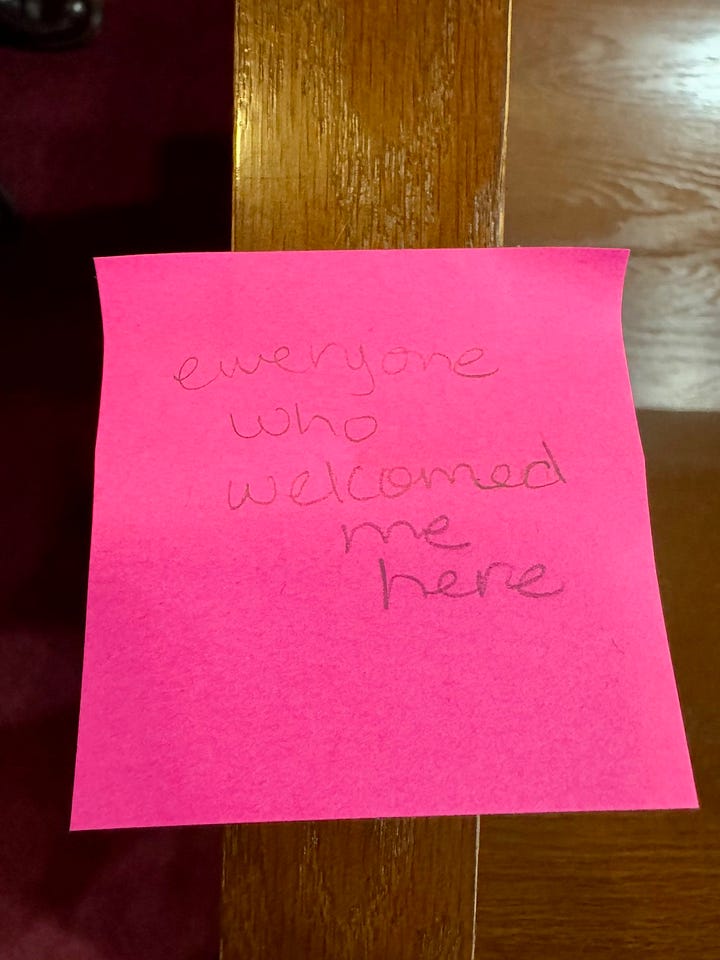
We named the ones who might feel like they can finally take a deep breath and belong in this space in the future.

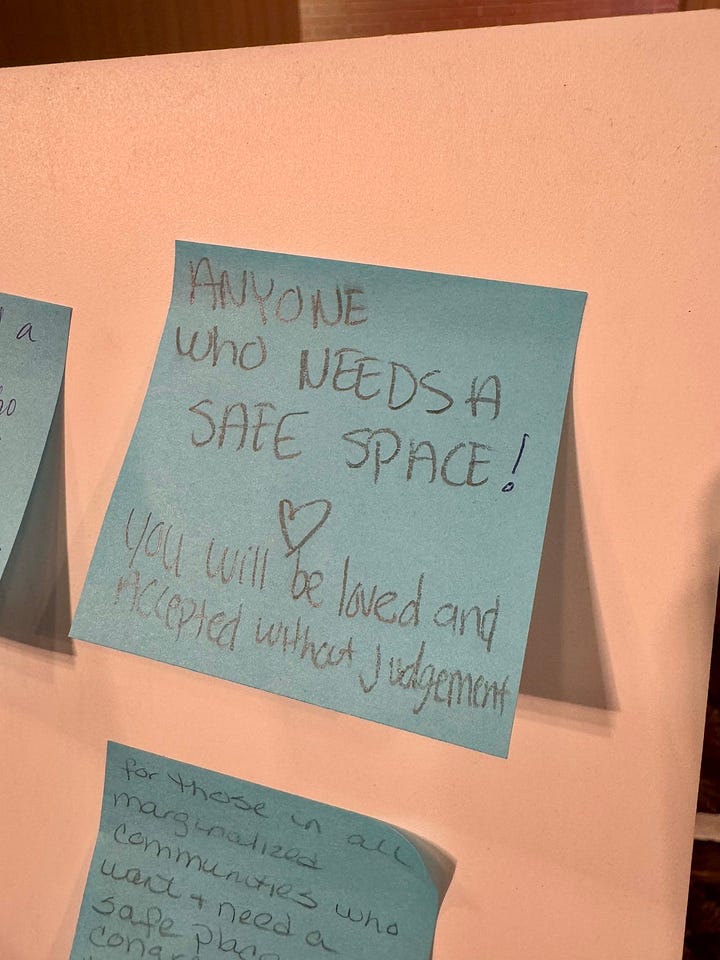
Y’all. Holy ground.
At the end of our gathering, everyone picked up hymnals, Bibles, tissue boxes and started the process of clearing the space. Then the chainsaws came out an hour or two later and pews started traveling to their new homes. Some are going to a special restaurant, a high school wood shop, a woodworker’s home, and several living rooms.
Sometimes we get so attached to our spaces, that we fear they hold our entire identity. But this community? They’re wrestling with the far deeper truth that the Church is the people. Especially in these days, we need love-centered folk to dig their toes into the dirt and rise. This is not the time for distractions and petty arguments over carpet. This is not the time to copy and paste from last year or last decade.
Love is longing for us to listen to those being harmed. To rearrange ourselves, where needed, so we can show up to and for our neighbors.
Thought I’d share with you a small excerpt from my message where I highlight what their yes means to me. You can watch or read the transcript below.
I’ve loved the Church (capital C) for a long time. But it’s been an ambivalent relationship. I’ve watched the world change around the church my entire life. I’ve watched churches be so attached to their way of doing things, be so afraid that they seemed willing to slowly disappear rather than face the big shifts that would turn them toward their community.
There have been many moments where I’ve come dangerously close to giving up on the Church. Convinced none of them were willing to do the really hard work to see outside of their preferences to new ways to connect with friends.
I thought many times that I might be able to make more of a difference with the one life I get to live somewhere else than the church. I didn’t know how much longer I could pound my hands against closed doors because people didn’t seem to see what I saw. There are so many amazing humans looking for a place like this but their entry points have to look different than so many of the ones we’ve always known.
So often it felt like the message was, “We’re not changing. You can adapt to us.”
Until I got to you.
This wild community full of humans who have been so open hearted since day one.
You just keep saying, “Sure, let’s try it.” Even if you’re a little unsure. Even when there’s some grief about it.
And it’s almost too much for me to understand.
Your yes makes me feel like maybe I could belong here too.
So on behalf of the ones among us who want to belong in a community like this, thank you.
On behalf of the people who will enter these doors and find home in new ways, thank you.
To end, I wrote you a poem this week!
there once was a community
who rooted deeply into the earth
proclaiming for all to hear
we are god’s people!
we are called by christ
to ministries of love
justice and reconciliation
with our church
our community
our worldthey didn’t know where
that commitment would
take them but they
knew making the journey
together
matteredso they loved each other
with hugs
calls and food
rides to appointments
chats over coffee
pledge cards
birthday cards
work parties
protest signs
smiles in the hallway
gifts of all kinds
for decadesgenerations came
generations wentthey embodied the love
they received from christnew faces tentatively
walked through the doorswondering if they too
could belongdifferent needs
new ideas
same lovewe know how most
of these stories endthe seasoned ones could have demanded
things stay exactly the samebut they didn’t
instead
the most beautiful
thing unfoldedthey opened their hands
to share all that meant
so much to themthey allowed it to
become new again
and again
and again
and againalmost as if
they knew the
love and call of christ
in their boneswe are god’s people!
we are called by christ
to ministries of love
justice and reconciliation
with our church
our community
our worldmay it be so
amen

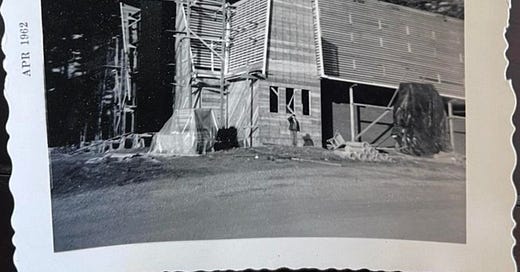




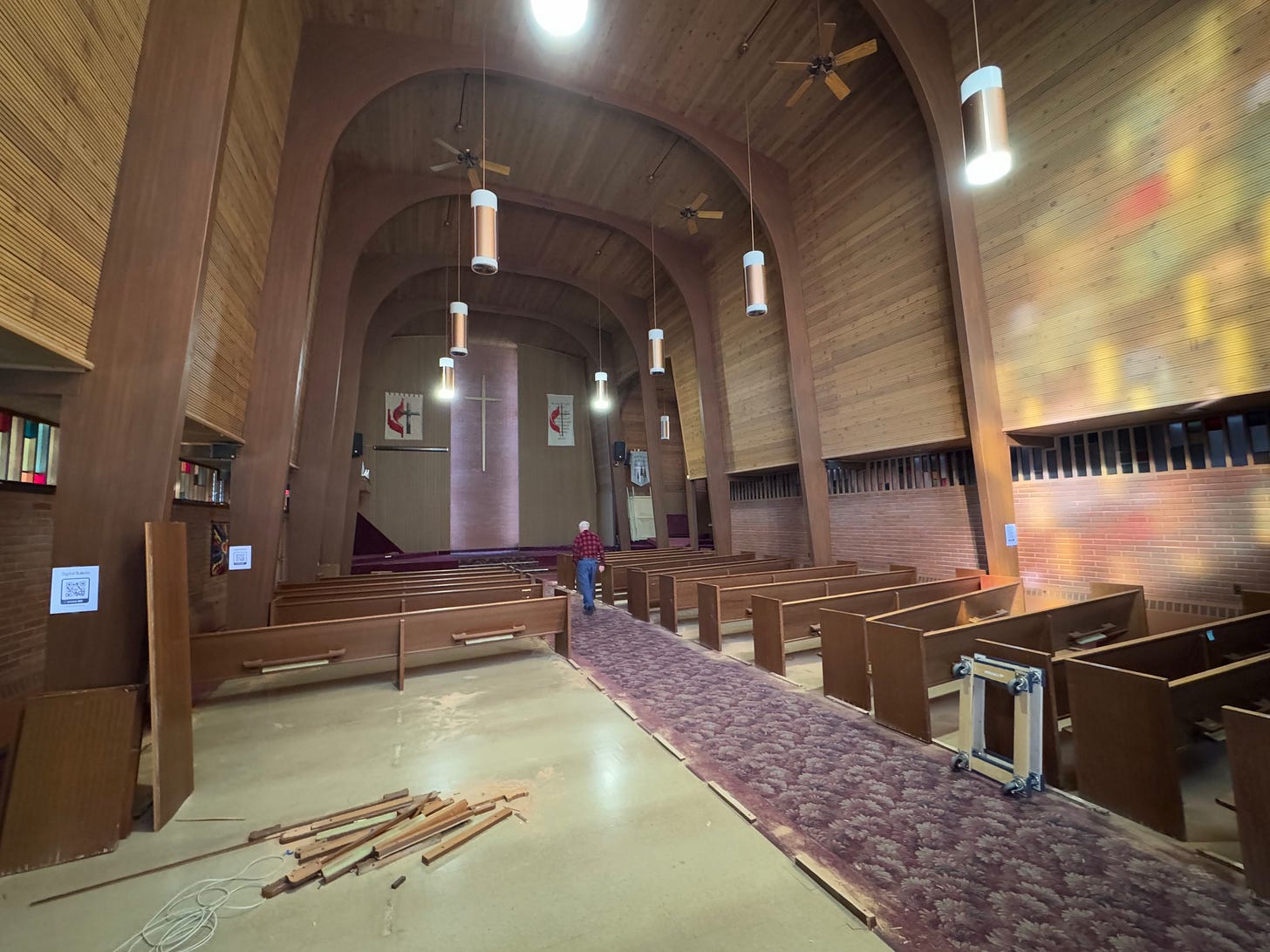
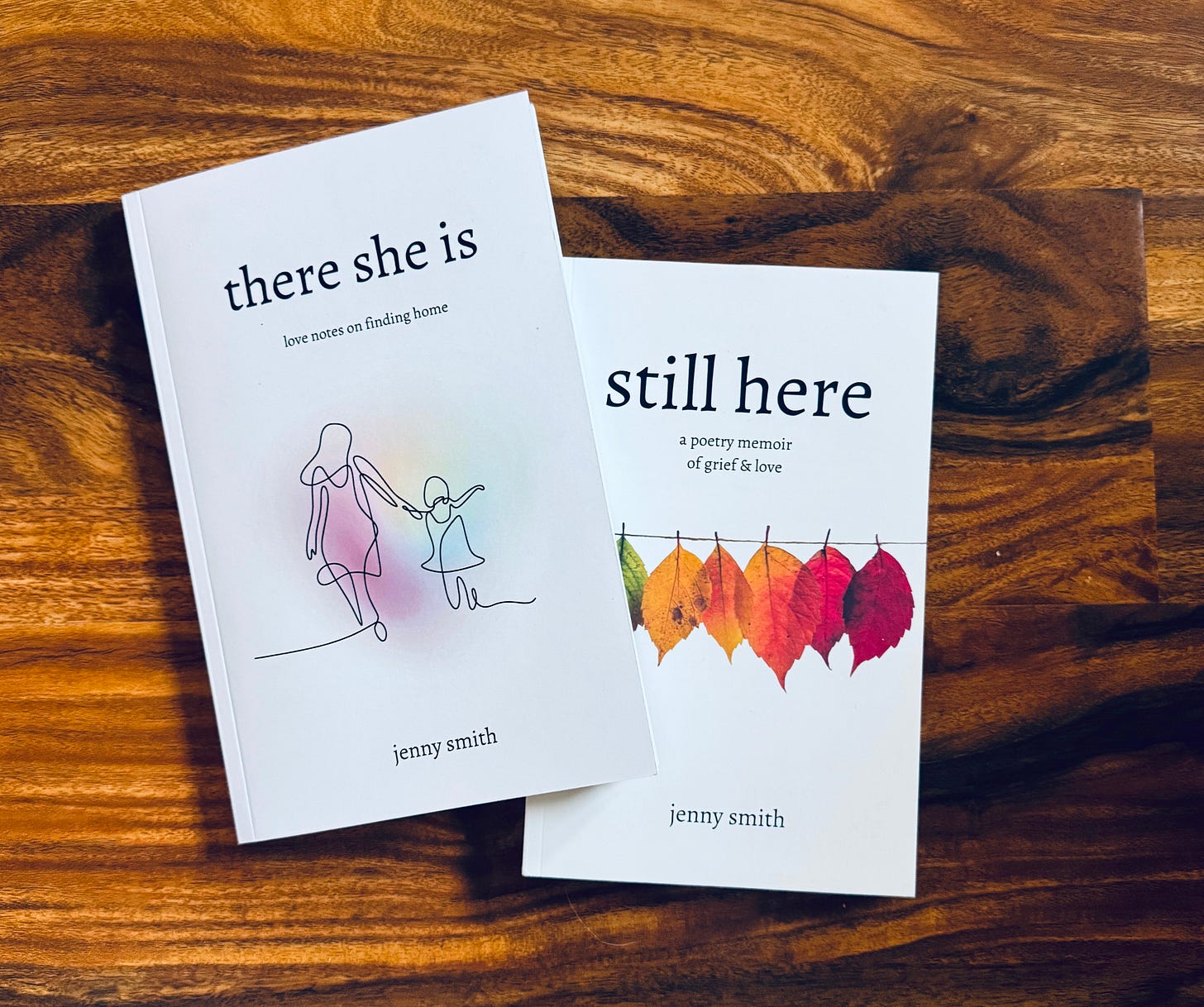
What a beautiful story that gives me heart, hope that such a community can exist.
The Church really can become a new wineskin! What a great movement of faith and hope.